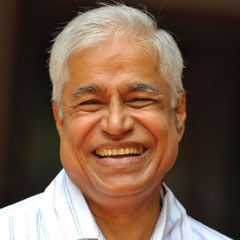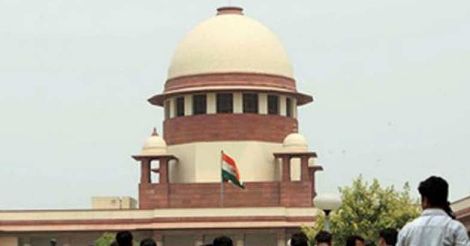The Supreme Court's March 2017 directive to install closed circuit television (CCTV) cameras, on an experimental basis, in at least two district courts in every state and union territory is indeed a vital step towards inclusive justice delivery.
The SC bench which gave the directive comprised Justices A.K. Goel and U.U. Lalit.
In a vast and heterogeneous country like India, there are many factors which prevent the 'institutionalization of transparency.' A transparent justice delivery system could but form the bedrock of a solid democracy. Every camera in our court will indeed alter the philosophy that esoteric justice takes shape in the dark chambers of the legal system and the misplaced notion that all adjudication should be out of public scrutiny.
The lack of a clear legislation has been an impediment in installing cameras in courts. Cameras are allowed in courts in Australia, France, Italy, New Zealand, Singapore, China, Russia, Israel, the Netherlands, Norway, Spain, and the US.
The apex court had consistently refused to entertain the idea, even though the Union Law Ministry had approached the Chief Justice of India thrice in this regard. The government argues in the interest of 'transparency and better case management.'
Many PILs were dismissed in spite of the Law Commission of India recommending audio-video recordings. Judges stoutly defended their freedom to conduct work in a closely guarded manner. Significantly, the proceedings of both houses of Parliament, Lok Sabha and Rajya Sabha, are telecast live through television channels, round-the-clock.
It is clear that courtrooms alone cannot evade the wave of all-pervasive technology and new concepts of justice delivery. Cameras in courtrooms, as a technology addition which enables proper justice delivery, will demand the codification of new rules and practices. New patterns of demand and response are also sure to emerge.
Cameras in courts will help avoid sensational ‘trial by media.’ It will enhance public confidence in judiciary and make the system of judicial administration more efficient and accountable. Public monitoring will improve trial processes in courts and will provide a tangible and powerful incentive for lawyers and judicial officers.
The argument that judges, lawyers, and witnesses will become 'camera conscious,' hesitant, and less honest is ill-founded. That the demands of the media will supersede needs for fair trial is also not sound as only unobtrusive cameras will be used under restrictions and safeguards.
The apex court's March 2017 order came on a petition filed by Pradyuman Bisht for audio-video recording of trial court proceedings to ensure fair trial and transparency. The bench had, on February 6, 2017, named additional solicitor-general (ASG) Maninder Singh and senior advocate R. Venkataramani as amicus curiae in the matter. The learned lawyers, on SC mandate, visited Gurgaon courts to assess the ground situation.
In the recommendations made, they said cameras should be installed at appropriate locations and monitored by the principal district and session’s judge concerned. The choice of courts and locations were to be decided by the respective high courts.
Reports of the experiment were to be submitted by the registrar of the respective high courts to the secretary-general of the Supreme Court for tabulation and subsequent perusal by the bench.
The bench heard the matter again on August 9. The ASG reported that eight high courts had implemented the orders and installed CCTV cameras in two districts while four others were in the process of doing so. The Kerala High Court had chosen the district courts of Ernakulam and Thiruvananthapuram as 'camera courtrooms.'
On the ASG’s submission that audio recording could also be allowed, the bench said cameras could be installed in high courts and the Supreme Court too. They judges said 'constitutional courts in other countries have audio and video recording and it was not a matter of privacy of judges.' They pointed out that US Supreme Court recordings were available on YouTube.
The bench also desired that 'CCTV cameras be installed in all subordinate courts in a phased manner as may be considered appropriate by the high courts.' It said a 'schedule may be drawn up in a month and information furnished to the Supreme Court in two months.'
However, the recordings will not be subject to RTI for the time being. The bench will again take up the matter soon.
Apart from the 24 high courts, there are nearly 6,600 district courts, lower courts, and various tribunals.
A comprehensive procedure-detailing is expected in the final verdict of the Supreme Court.
Anyhow, the moot point is that the benefit could be two-pronged - public interest could be satiated for public good and It will reinforce confidence in the judicial system.
(The writer is a former additional director-general,doordarshan, Prasar Bharati. He may be reached on kkunhikrishnan@gmail.com)
Read more at: Latest in columns | Is it ethical to put the public glare on Dileep's daughter?

























 Courts must open up their proceedings to the public to reinforce their credibility: File photo.
Courts must open up their proceedings to the public to reinforce their credibility: File photo.